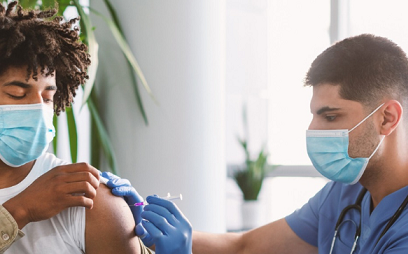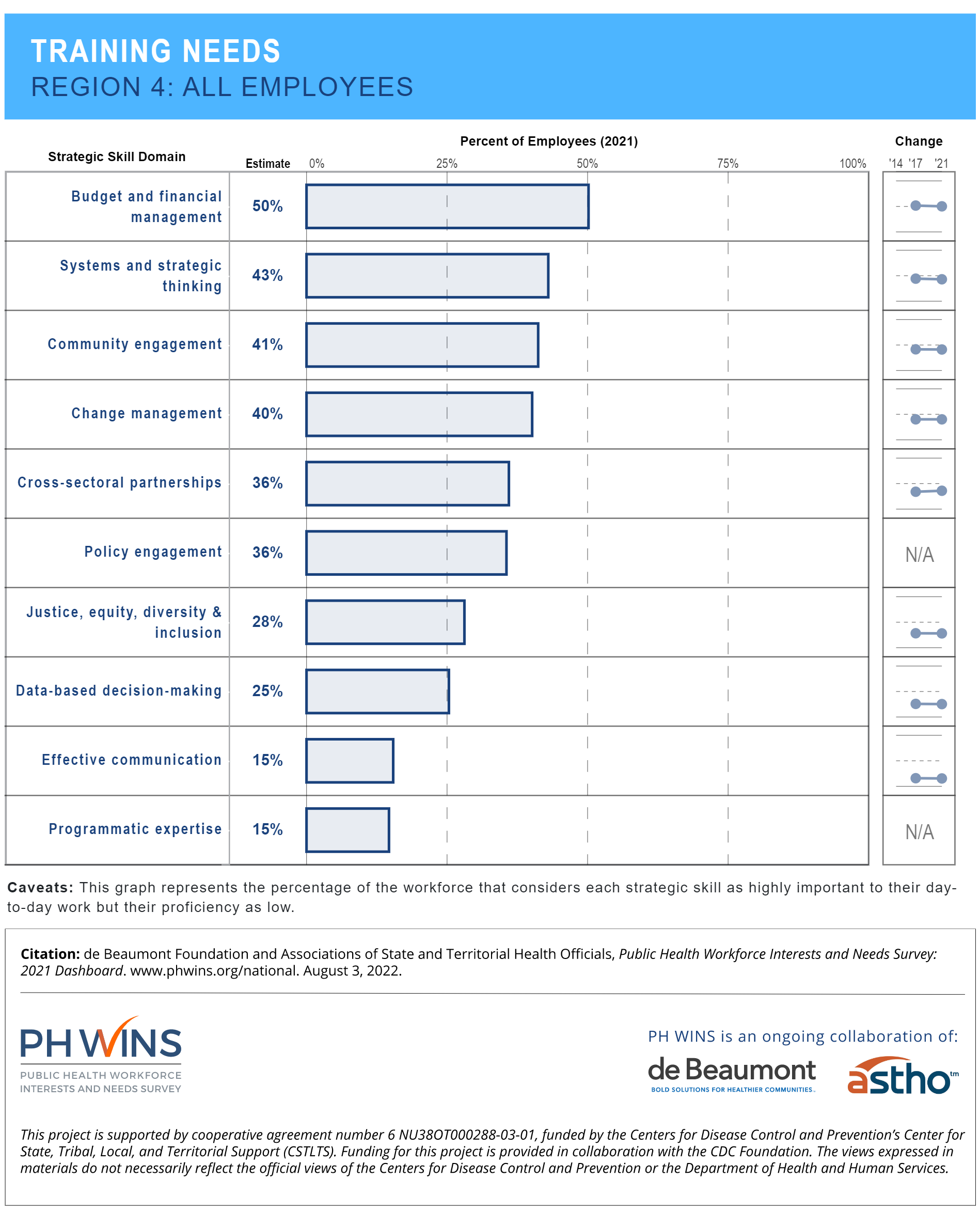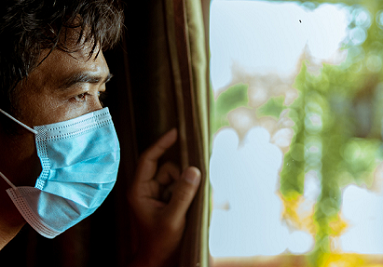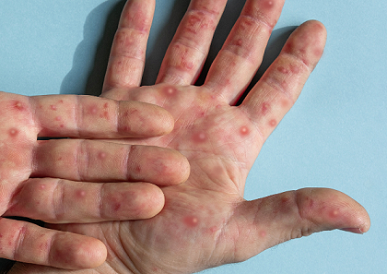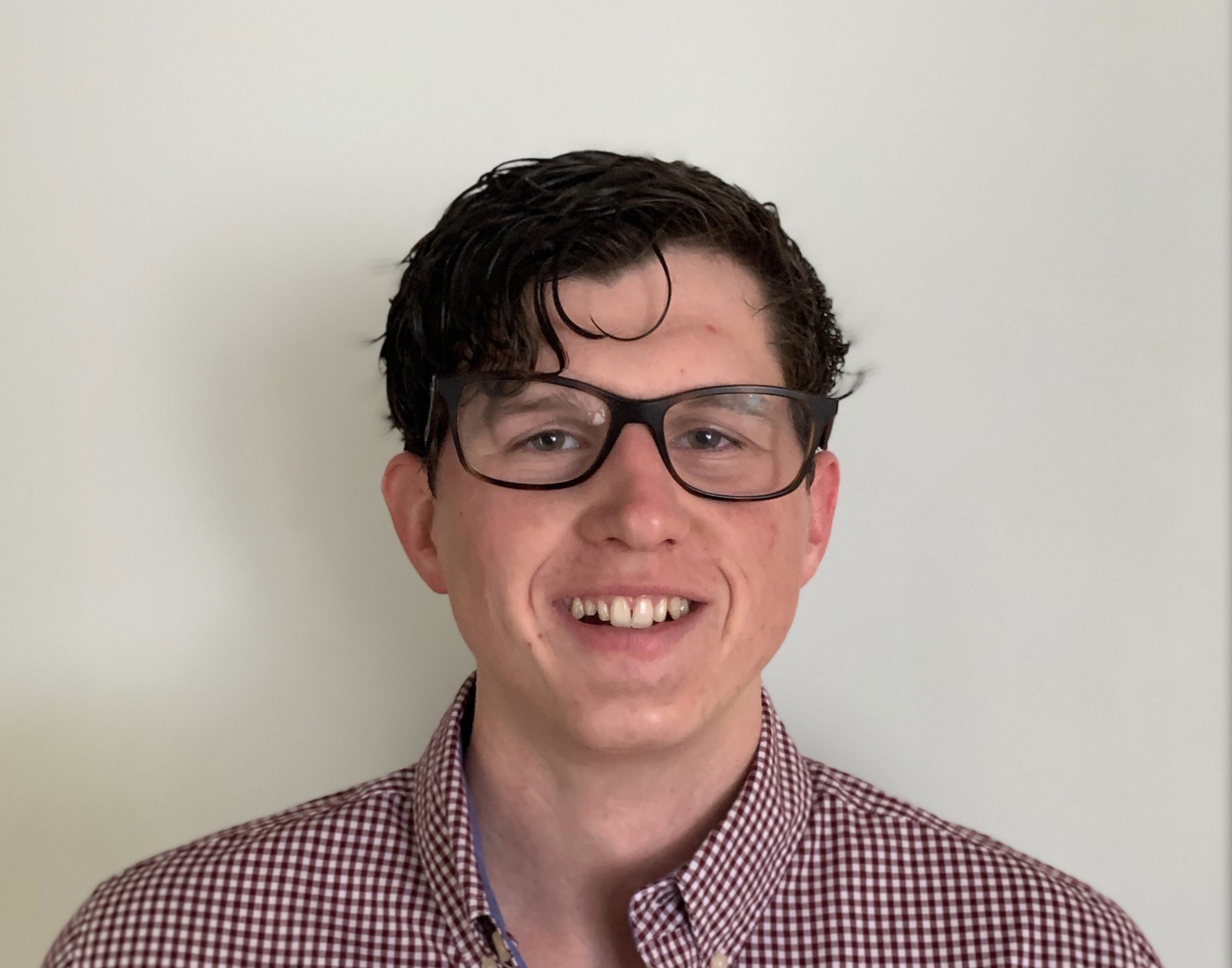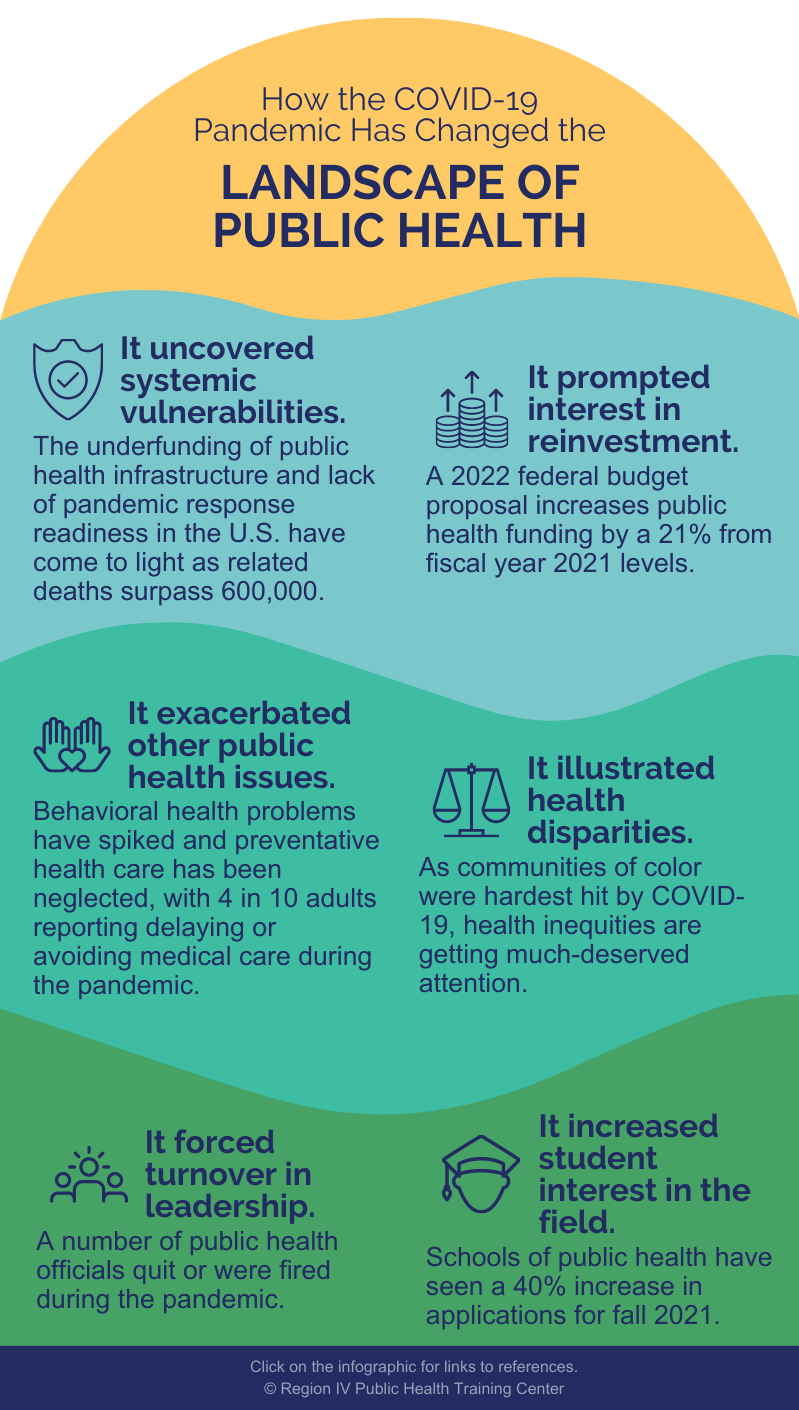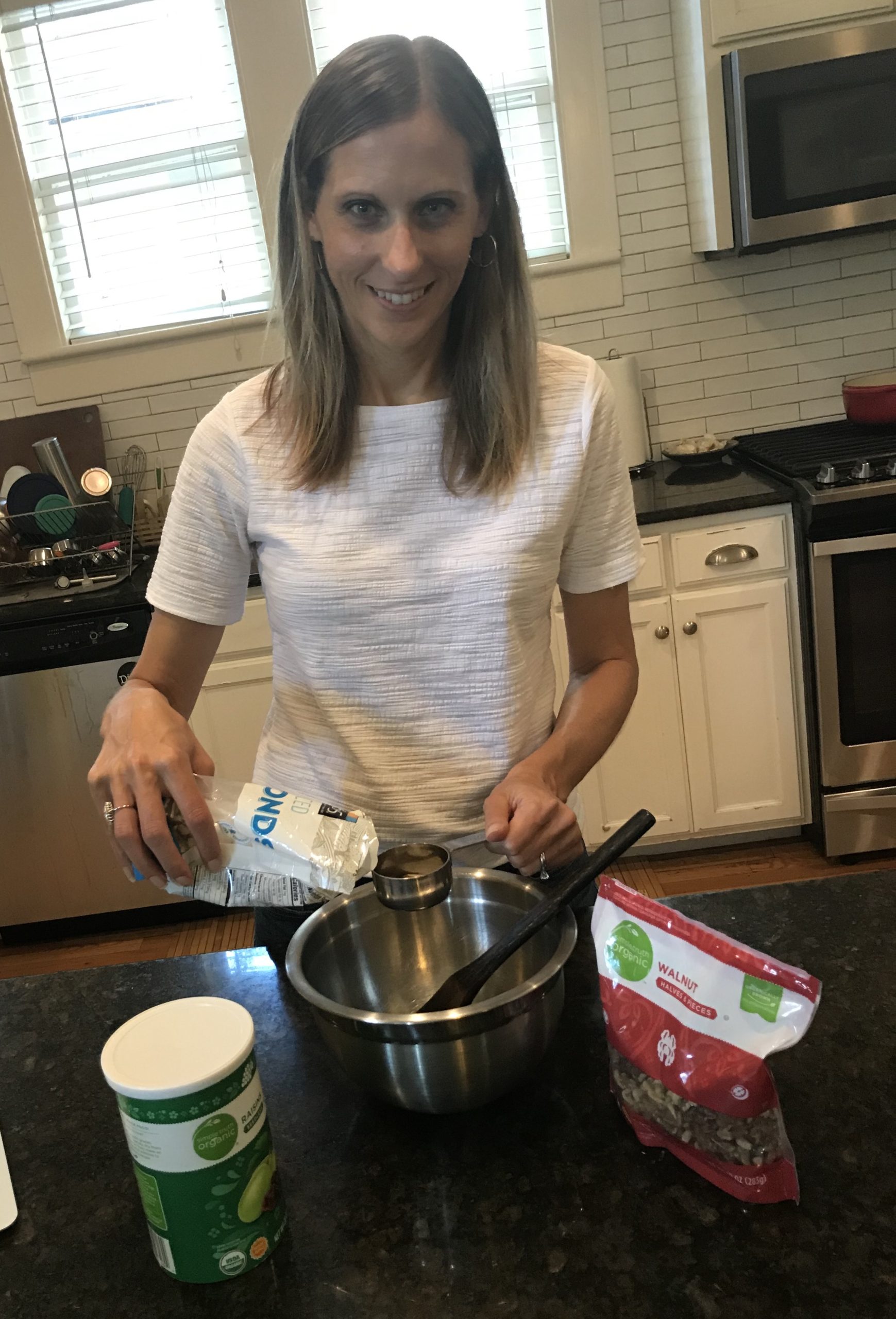
by R-IV PHTC | Oct 19, 2022 | Training
Protect and Preserve: Priorities of Antimicrobial Stewardship
Year: 2022| Competency/Strategic Skill: Public Health Fundamentals | Priority Topic: Other Infectious Diseases | Setting: On-Line| Format: On-Demand | Sponsor: Emory University/Central Office, University of Alabama at Birmingham
Overview:
This is a recording of the live webinar scheduled for November 1, 2022 at 12PM CT.
Antimicrobials are essential for modern medicine; however, they become less effective over time. In addition, adverse effects and other negative consequences of antimicrobial use are not uncommon. Dr. Matthew Brown, the supervising pharmacist for antimicrobial stewardship and the director of the PGY2 infectious diseases pharmacy residency program at UAB Hospital, will provide an overview of antimicrobial stewardship and how it can help protect patients and preserve the utility of these important medications.
This webinar is presented by the Alabama Regional Center for Infection Prevention and Control Training and Technical Assistance, and is co-sponsored by Alabama Regional Center for Infection Prevention and Control Training and Technical Assistance and the Region IV Public Health Training Center.

by R-IV PHTC | Sep 27, 2022 | Training
The ABC’s of Viral Hepatitis: Update for Public Health Professionals
Year: 2022 | Competency/Strategic Skill: Communication | Priority Topic: N/A | Setting: Online | Format: On-Demand | Sponsor: Emory University/Central Office, University of Alabama at Birmingham
Overview:
This is a recording of a webinar held on October 18, 2022 at 12PM CT.
This webinar will provide a snapshot of viral hepatitis epidemiology and an overview of the 2021-2025 US National Strategic Plan/Roadmap for Elimination which is highly relevant to the public health community. We will include a discussion about current surveillance data that reveals trends, challenges and opportunities, prevention through vaccination and approaches to treatment.
Learning Objectives: By the end of this webinar, participants should be able to:
- Describe key approaches to stopping the spread of viral hepatitis, eliminating it as a public health threat, and saving lives
- Discuss key strategies to increase vaccination and improve care and treatment of viral hepatitis
- Describe the social determinants of health that contribute to the viral hepatitis epidemic and the unequal burden of viral hepatitis in the United States
Speaker: Barbara DeBaun, MSN, RN, CIC, Improvement Advisor at Cynosure Health
Barbara DeBaun has over 40 years of experience in the field of infection prevention and quality improvement. She is currently an Improvement Advisor with Cynosure Health where she provides vision and leadership in the development, implementation and facilitation of infection prevention and quality improvement initiatives for healthcare organizations. Barbara is a certified Infection Control Practitioner and holds a Bachelor’s degree in nursing from Pace University in New York and a Master of Science Degree in Nursing from San Francisco State University. Barbara served two years as an elected member of APIC Board of Directors. Barbara has lectured nationally and internationally on a variety of patient safety and infection control topics and has published over a dozen articles and several book chapters. In 2008, she was selected as Infection Control Today’s Educator of the Year.
This webinar is co-sponsored by Alabama Regional Center for Infection Prevention and Control Training and Technical Assistance and the Region IV Public Health Training Center.

by R-IV PHTC | Sep 27, 2022 | Featured Training, Training
Strategies for Combatting Health Misinformation
Year: 2022 | Competency/Strategic Skill: Communication | Priority Topic: N/A | Setting: Online | Format: On-Demand| Sponsor: Emory University/Central Office, University of Alabama at Birmingham
Overview:
This is a recording of the live webinar scheduled for October 13, 2022 at 12PM CT.
Misinformation has been a risk factor throughout the pandemic, leading to more disease and death from COVID-19. Dr. Katrine Wallace (UIC School of Public Health) is an epidemiologist and social media science communicator who debunks misinformation and false claims about COVID-19 and the vaccines. In this webinar, Dr. Wallace will explain the difference between misinformation vs disinformation, discuss why disinformation is such a widespread public health issue, and identify strategies to combat health misinformation among your own friends/family/workplace.
This webinar is co-sponsored by Alabama Regional Center for Infection Prevention and Control Training and Technical Assistance and the Region IV Public Health Training Center.
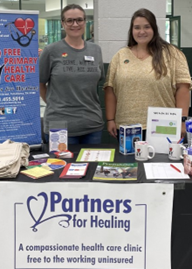
by R-IV PHTC | Sep 19, 2022 | Field Placement Stories
Emilie Martin Helps Serve the Uninsured
In Summer 2022, Emilie was pursuing her Master of Public Health degree with a Community Health Concentration at East Tennessee State University. When it came time to select a field placement, there was no question in Emilie’s mind to reach out to Partners for Healing for a position, after volunteering with them as an undergraduate. The mission of Partners for Healing is to provide compassionate health care and nurturing to the working uninsured in 3 counties in southern middle Tennessee. Emilie was offered a Region IV PHTC Pathways to Practice Scholarship to analyze if the clinic was adequately reaching and serving its population, support its outreach programs, and assist in creating referral systems for patients in need of specialty care. At the end of her experience, Emilie stated:
I originally volunteered with Partners for Healing in 2018 when I was in my undergraduate studies at East Tennessee State University. I had every intention of pursuing medical school at the end of my four-year degree, however, my time at Partners changed my view of how I could help people. I realized there was a need outside of practicing medicine, but I knew I wanted to make a bigger impact.
I learned more than I could have imagined through working with Partners. I learned about resources in my community, how non-profit organizations are organized and run, and much more. My knowledge of the field has grown, and I have been afforded the opportunity to make connections with Vanderbilt Medical Center, Unity Medical Center, Southern Tennessee, and more.
Since starting with Partners, they have offered me a full-time passion as outreach coordinator. I will start this position after I graduate with my MPH and will hopefully be able to grow within this clinic, and maybe find a career in working with non-profit organizations.
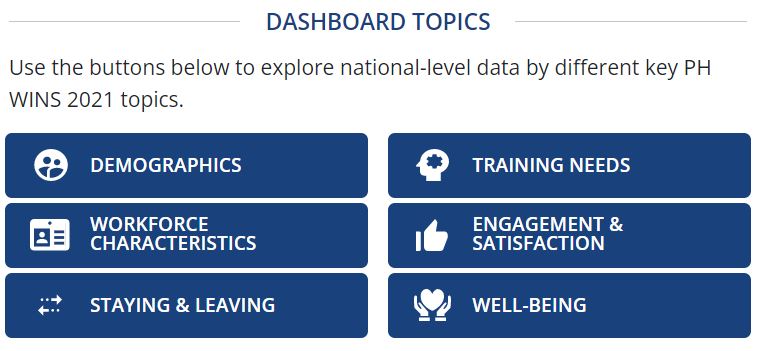
by R-IV PHTC | Sep 19, 2022 | News
The Region IV Public Health Training Center (R-IV PHTC) uses PH WINS data in our ongoing, mixed methods training needs assessment process. The top training needs identified in Region IV by the 2021 PH WINS are: budget and financial management, systems and strategic thinking, community engagement, cross-sectoral partnerships, change management, and policy engagement. The R-IV PHTC Training Catalog, which can be filtered by strategic skill, includes many self-paced learning opportunities on each of these priorities.
More data about the workforce in Region IV is available in this Summary Report. Individuals can also submit data use requests from de Beaumont by using this form.

by R-IV PHTC | Sep 12, 2022 | Training
Responding to the 2022 Monkeypox Outbreak
Year: 2022 | Competency/Strategic Skill: Public Health Fundamentals | Priority Topic: Other Infectious Diseases | Setting: Online | Format: On-demand | Sponsor: University of Alabama at Birmingham and Emory University/Central Office
Overview:
This is a recording of a live webinar from September 15, 2022 at 12 pm CT.
In this webinar, Dr. Nicolas Van Wagoner, associate professor of Medicine in the Division of Infectious Diseases at the University of Alabama at Birmingham Heersink School of Medicine, will provide a historical overview of monkeypox before 2022 and how the outbreak has reemerged globally, as well as in the United States. This webinar will outline the current state of monkeypox, and the public health response including testing, prevention, and vaccination, as well as provide guidance on communications to prevent misinformation and stigma.
This webinar is co-sponsored by Alabama Regional Center for Infection Prevention and Control Training and Technical Assistance, the Region IV Public Health Training Center, and the Deep South Center for OH&S .

by R-IV PHTC | Aug 22, 2022 | Training
The Mystery and Epidemiology of Long COVID
Year: 2022 | Competency/Strategic Skill: Public Health Fundamentals | Priority Topic: Other Infectious Diseases | Setting: Online | Format: On-Demand | Sponsor: University of Alabama at Birmingham and Emory University/Central Office
the
Overview:
This is a recording of the live webinar from September 29, 2022 at 12 pm CT.
Two and a half years into the COVID-19 pandemic, there is emerging evidence that in some patients, its symptoms may linger for months or even years after the initial infection. While prevalence estimates vary widely, such ‘long COVID’ symptoms likely persist in more than 10% of all COVID-19 cases. This webinar will summarize the current scientific debate about long COVID– is it an autoimmune disease, a consequence of comorbidities, or something else? We will draw on a recent study of 100,000+ COVID-19 cases to understand who is susceptible to long COVID, how long the symptoms can last, and whether vaccination can improve long COVID outcomes.
This webinar is presented by Stella Aslibekyan, PhD, Senior Scientist, Genetic Epidemiology, 23andMe; Adjunct Professor, Epidemiology, University of Alabama at Birmingham & University of Kentucky. This webinar is co-sponsored by Alabama Regional Center for Infection Prevention and Control Training and Technical Assistance, the Region IV Public Health Training Center, and the Deep South Center for OH&S .

by R-IV PHTC | Aug 22, 2022 | Training
What You Should Know About the 2022 Monkeypox Outbreak
Year: 2022 | Competency/Strategic Skill: Public Health Fundamentals | Priority Topic: Other Infectious Diseases | Setting: Online | Format: On-demand | Sponsor: Alabama Public Health Training Network
Overview:
This is a 12-minute podcast episode.
From early May 2022 to June 13, 2022 (the date of this podcast recording), over 1,300 confirmed cases of monkeypox have been reported across 31 countries that normally don’t see any cases of monkeypox. Occasionally, outbreaks have occurred outside Africa. But, in most instances, these cases were associated with international travel or contact with individuals or animals from endemic regions. Currently, the CDC and World Health Organization are tracking multiple reported cases and monitoring several person in counties without endemic monkeypox and with no known travel links to an endemic area.
In today’s podcast, we welcome back Dr. Rachael Lee, Associate Professor in the UAB Division of Infectious Diseases and UAB Health Epidemiologist to talk to us about monkeypox – what it is and if we should be worried?

by R-IV PHTC | Aug 22, 2022 | Training
Emory Urban Health Initiative: Applying Principles of Participatory Community Engagement to Advance Health Equity
Year: 2022 | Competency/Strategic Skill: Community and Partner Engagement | Priority Topic: N/A | Setting: Online | Format: On-Demand | Sponsor: Emory University/Central Office
In Overview:
This is a recording of the 90-minute live webinar from September 14, 2022 (12 – 1:30 pm ET).
The Emory Urban Health Initiative (UHI) has a mission to provide health disparities education and advocacy, build collaborative partnerships, and develop best practice models with low-wealth communities and those who work with them to advance equity in health and well-being. In this webinar, Stacie Schmidt, MD, the Co-Director of the Emory Urban Health Initiative (UHI), Carolyn Aidman, PhD, the Associate Director of Emory UHI, and Joan Wilson MS, JM, FACHE, the Assistant Director of Emory UHI will describe the work of UHI in advancing the social, economic, and ecological well-being of communities in the Atlanta metro area. Participants will learn about best-practice models for participatory community engagement within low-wealth and underserved communities. Attendees will also gain perspective about the collaborative model of the program in developing health career students into future professionals who embrace and engage communities in self-efficacy and experiential approaches to solving the health problems affecting their communities.
By the end of this webinar, participants will be able to:
- Describe the purpose of the Emory Urban Health Initiative in advancing the social, economic, and ecological wellbeing of communities in the Atlanta metro area.
- Identify at least 2 best-practice models for participatory community engagement with low-wealth communities.
- Explain how the Urban Health Initiative model fosters growth of future health career professionals who embrace and implement community-engaged principles in their future work.
-

by R-IV PHTC | Jun 23, 2022 | News
2022-2023 Public Health & Primary Care (PHPC) Leadership Institute
The deadline for applications has passed.
Are you an emerging leader at a state or local health department, tribal health organization, or FQHC/FQHC Look-Alike?
Program Overview
The Region IV Public Health Training Center has partnered with the J.W. Fanning Institute for Leadership Development at the University of Georgia to offer the Region IV Public Health & Primary Care (PHPC) Leadership Institute. The PHPC Leadership Institute provides training for individuals from the eight states that comprise HHS Region IV (Alabama, Florida, Georgia, Kentucky, Mississippi, North Carolina, South Carolina, Tennessee). There is no fee to participate.
The PHPC Leadership Institute is an 8-month experience providing 40 contact hours of interaction. The Institute consists of a virtual orientation; an in-person opening retreat (Oct 31 – Nov 2, 2022; if travel is not safe, there will be a virtual opening retreat 3 hours each day from Oct 31 – Nov 3, 2022); and 6 virtual sessions, lasting 2 hours each. In addition to these sessions, participants will be asked to complete approximately 2-3 hours of intersession work between the virtual sessions.
Who Should Apply
Emerging public health and primary care leaders who:
- Work in governmental state, local, or tribal public health departments, tribal health organizations or FQHCs/FQHC Look-Alikes
- Work in one of the following states: Alabama, Florida, Georgia, Kentucky, Mississippi, North Carolina, South Carolina Tennessee
- Manage programs, supervise staff and/or demonstrate leadership potential
- Work with underserved populations and/or are from under-resourced health departments
The interaction with colleagues from other states and with very varying points of view…. Building connections with my peers was the most useful part. I learned a lot about myself, including challenges that I want to learn to face. The most useful part was learning together and from one another!
– previous Leadership Institute participant
Program Learning Objectives
By the end of the Institute, participants will be able to:
-
- Identify personal leadership strengths
- Address a leadership challenge through a self-directed adaptive approach
- Engage in peer consulting with Region IV colleagues
- Apply leadership competencies in the context of public health
Time Remaining to Apply (with Extended Deadline)

by R-IV PHTC | Jun 11, 2022 | Training
Year: 2022 | Competency/Strategic Skill: Resource Management and Financial Planning | Priority Topic: Mental Health | Setting: Online | Format: On-Demand | Sponsor: Medical University of South Carolina
Overview:
This is a recording of a one-hour webinar.
In this recorded webinar, presenters discuss various types of stress and the physiological and mental health impacts that result from prolonged stress and burnout on the healthcare worker in particular. Furthermore, the presentation provides strategies and solutions to reduce stress and mitigate the associated health risks including increasing their sense of purpose, utilizing proper goal setting techniques and cultivating a culture of wellbeing within the workplace and beyond. This module contains a recorded presentation and evaluation.

by R-IV PHTC | Jun 11, 2022 | Training
Predicting Human Disease Risk from Animal-borne Pathogens
Year: 2022 | Competency/Strategic Skill: Data Analytics and Assessment | Priority Topic: Other Infectious Diseases | Setting: Online | Format: On-Demand | Sponsor: Emory University/Central Office and University of Alabama at Birmingham
Overview:
This is a recording of the webinar scheduled for July 28, 2022 at 11am CT.
Dr. Barbara Han, a disease ecologist at the Cary Institute of Ecosystem Studies, will explore recent approaches that combine knowledge about animal ecology with machine learning and artificial intelligence tools to make predictions about where and from which species the risks of zoonotic outbreaks are greatest. Examples will emphasize the ongoing spillback transmission of SARS-CoV-2 from humans to animals, the risk of establishing new viral reservoirs of COVID-19, and predicting wild reservoirs of bat-borne filoviruses (Ebola, Marburg) and rodent-borne pathogens such as monkeypox.
Dr. Han is a disease ecologist at the Cary Institute of Ecosystem Studies in New York. She completed her PhD at Oregon State University during which time she also completed a Fulbright Fellowship in Venezuela. Dr. Han went on to complete consecutive postdoctoral fellowships in biological informatics (NSF) and machine learning (NIH) at the University of Georgia. Her research program at the Cary Institute develops predictive analytics of zoonotic diseases and is supported by grants from the NIH, NSF, and DARPA.
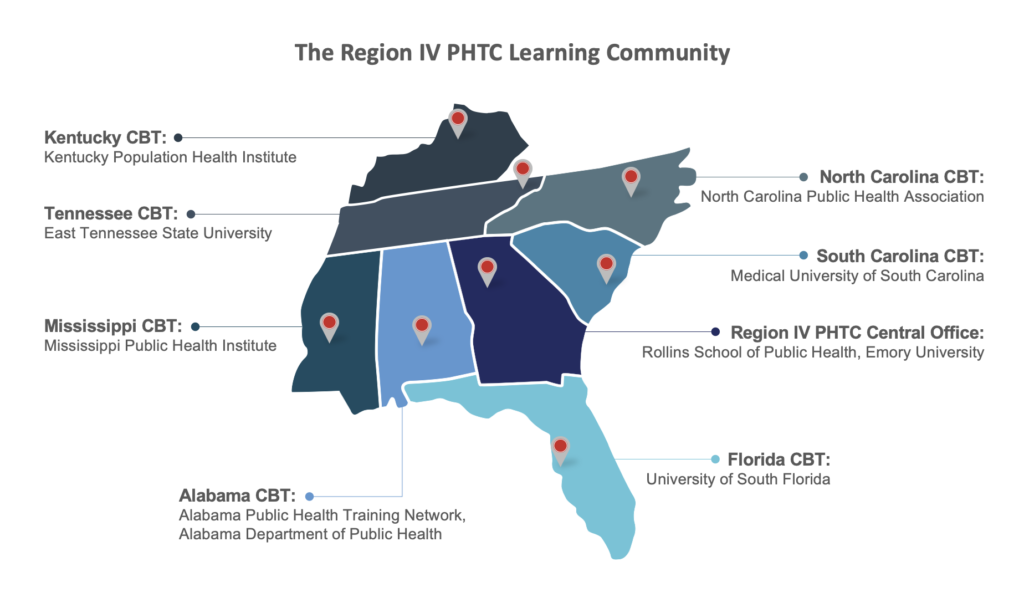
by R-IV PHTC | Jun 7, 2022 | Featured Post, News
The Region IV Public Health Training Center (PHTC) has received a $4.4 million award from the Health Resources and Services Administration (HRSA), a U.S. Department of Health and Human Services (HHS) agency. These funds will be used over the next four years to improve the ability of the public health workforce to meet national, state, and local needs under the direction of Principal Investigator Melissa (Moose) Alperin, EdD, MPH, MCHES.
The new round of funding begins in July 2022. The mission of the Region IV PHTC is to build the capacity of the current and future public health workforce to protect and promote the health of communities in the Southeastern United States. The Region IV PHTC is committed to equitably advancing this mission by: providing priority competency-based trainings and technical assistance to the public health workforce; engaging public health and health profession students in experiential learning opportunities within local communities and medically underserved areas; developing an inclusive learning community with regional partners; supporting a culture of learning within public health agencies; and contributing to the work of the national PHTC program. The Region IV PHTC mission aligns with the HRSA PHTC program’s goals to increase the supply/diversity of public health professionals; enhance the quality of the public health workforce through student field placements; and provide tailored quality training to address current and emerging public health needs.
The Rollins School of Public Health (RSPH) at Emory University has been funded by HRSA as a public health training center since 2010 — first, as the Emory PHTC and then, in 2014 as the Region IV PHTC. The Region IV PHTC, headquartered at the RSPH, includes seven community-based training centers (CBTs) at partnering institutions (Alabama Public Health Training Network, Alabama Department of Public Health; University of South Florida; Kentucky Population Health Institute; Mississippi Public Health Institute; North Carolina Public Health Association; Medical University of South Carolina; and East Tennessee State University) and two technical assistance partners (University of Alabama at Birmingham and the J.W. Fanning Institute for Leadership Development at the University of Georgia). Together the Region IV PHTC network serves eight southeastern states: Alabama, Florida, Georgia, Kentucky, Mississippi, North Carolina, South Carolina and Tennessee. Nine additional Public Health Training Centers also received funded by HRSA to serve other HHS regions across the U.S.

by R-IV PHTC | May 19, 2022 | Training
Dr. Joseph McCormick: My Adventures Over 50 Years in Global Public Health
Year: 2022 | Competency/Strategic Skill: Public Health Foundations | Priority Topic: N/A | Setting: Online | Format: On-Demand | Sponsor: University of Louisville School of Public Health
In Overview:
This is a recording of a live webinar held on February 23, 2022
Meningococcal meningitis, Ebola Hemorrhagic Fever, Lassa Fever, Crimean-Congo Hemorrhagic Fever…the names top the list of the most feared and frequently lethal diseases known to humanity. These were the everyday domain of our February 23 Woodson Keynote Webinar Series speaker, Dr. Joseph McCormick.
Joseph B. McCormick was the founding Dean at the University of Texas Health Science Center at Houston School of Public Health. He was Dean for over 18 years and currently holds the James H. Steele, DVM Professorship at the UT Health School of Public Health in Brownsville. He earned bachelors degrees in chemistry and mathematics from Florida Southern College, an MS from the Harvard TH Chan School of Public Health and an MD from Duke University School of Medicine.
Dr. McCormick’s tenured career spans decades, countries and organizations. He is the recipient of numerous prestigious awards, a member of several scientific organizations, has published hundreds of scientific articles and has worked with co-authors from 20 different countries. Dr. McCormick and his wife Susan published an account of their journeys tracking viruses in Level 4: Virus Hunters of the CDC, which has been published in 8 languages.
By the end of this course, learners will be able:
- To discover the health risks associated with field work in emerging infectious diseases.
- To learn the personal protective measures associated with specific viral pathogens.
- To understand the range of emerging pathogens in developing nations of Africa.

by R-IV PHTC | May 19, 2022 | Training
Preventing Human Extinction as a Public Health Priority
Year: 2022 | Competency/Strategic Skill: Public Health Foundations | Priority Topic: N/A | Setting: Online | Format: On-Demand | Sponsor: University of Louisville School of Public Health
In Overview:
This is a recording of a live webinar held on April 20, 2022
Dr. Luby discussed how multiple threats including armed conflict involving nuclear weapons, genetically engineered pathogens, environmental catastrophes, and artificial superintelligence, could lead to human extinction by the end of the century. The global public health community should take these threats seriously and work to prevent them. Dr. Luby will discuss these threats in detail along with countermeasures to reduce their likelihood.
For the last 30 years Dr. Stephen Luby’s research efforts have engaged a broad array of health issues in low-income countries. Dr. Luby currently serves as the Director for Research of Stanford University’s Center for Innovation in Global Health. He is also appointed as a Professor of Medicine of Infectious Diseases and a Senior Fellow to Stanford’s Woods Institute for the Environment and the Freeman Spogli Institute for International Studies. Earlier in his career he lived in Pakistan for 5 years and Bangladesh for 8 years. Dr. Luby is a prolific researcher who by working closely with local collaborators has conducted extensive work assessing pandemic risks and strategies to reduce these risks. He teaches a popular course to Stanford freshman entitled “Preventing Human Extinction.”
Learning Objectives
By the end of this course, learners will be able to:
- Evaluate the major risks we currently face to the survival of the human species.
- Analyze the measures needed to counter each of these risks.
- Make the case that Public Health is the key professional discipline to address these challenges.
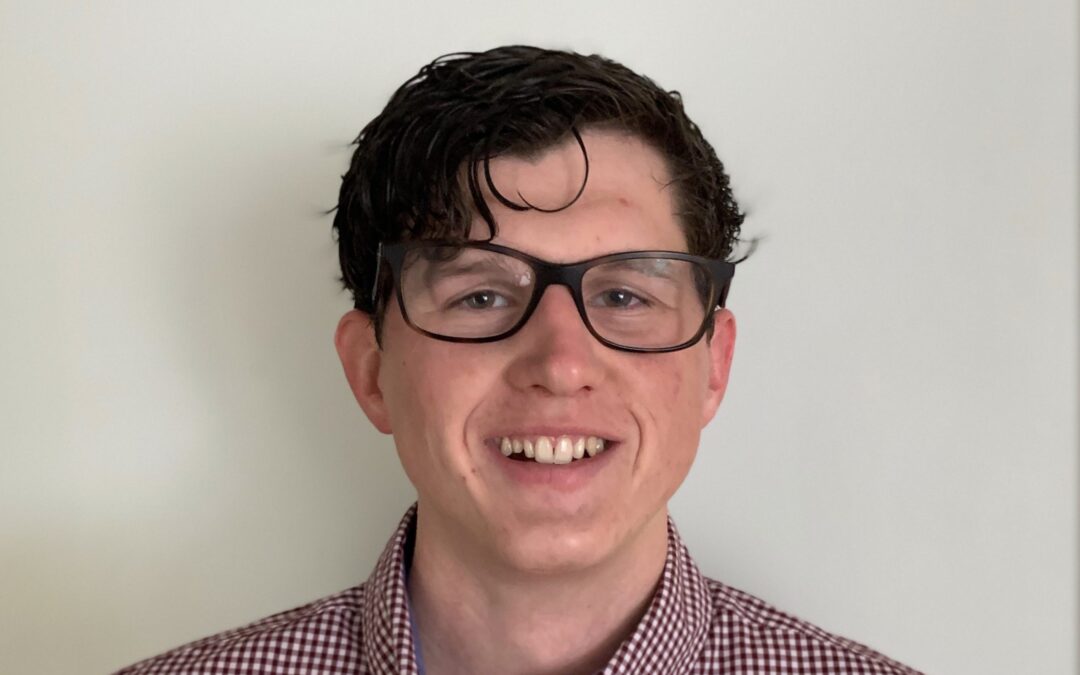
by R-IV PHTC | May 3, 2022 | Field Placement Stories
Zach Harley Goes “Behind the Scenes” in Public Health Planning
During his time as a fall 2021 Region IV PHTC Pathways to Practice Scholar, Zach was a fulltime student pursuing a Masters of Public Health with a concentration in Health Behavior and Health Promotion at the Medical University of South Carolina. Zach had a rewarding experience putting public health into action at Roper St. Francis Healthcare located in Charleston, SC. Zach collaborated with churches and community groups in rural and underserved areas to identify the most significant health needs to develop an action plan that supported their health ministry efforts. Zach also helped coordinate opioid reduction events and enhanced his understanding of the planning process for conducting a community health needs assessment. Here is Zach’s reflection on his experience in his own words:
Working with the Community Outreach Team at Roper St. Francis Healthcare this past semester was a valuable experience. Originally, this internship agency appealed to me because of the opportunity to work with people in the community and help organize and plan interventions aimed at helping people live healthier lives. However, due to organizational shifting and COVID-19, the projects I originally intended to work with were not able to be performed. However, through this shift, I was able to gain valuable experience in the behind the scenes aspect of public health.
I attended many coalition and partnership meetings. In these meetings, I truly saw how organizations come together to address public health needs. I learned that many people are involved in planning and implementing, and that check-in meetings are imperative. I learned that networking and building relationships with people of other organizations goes a long way to implementing public health change. In the end, I was able to assist with two community events.
Through these events I experienced how much public health is needed. However, I also experienced how simply having a conversation with someone can go far. I have gained valuable people skills through this experience, and I believe I will take those with me into my career in public health and to other areas of my life. Overall, I am very grateful for the experience I had with Roper St. Francis Healthcare Community Outreach.
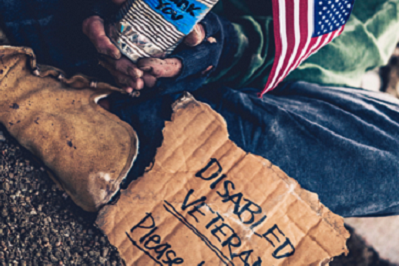
by R-IV PHTC | May 1, 2022 | Training
Homelessness and Health among Veterans
Year: 2022 | Competency/Strategic Skill: Cultural Competence, Diversity and Inclusion | Priority Topic: N/A | Setting: Online | Format: On-Demand | Sponsor: Emory University/Central Office
In Overview:
This is a 90-minute recording of a live webinar from May 24, 2022 from 12 – 1:30 pm ET.
Veterans experience higher rates of both homelessness and suicide compared with their non-Veterans peers. In addition, Veterans experiencing adverse social determinants of health—such as homelessness—are at increased risk of suicide and other poor health outcomes. In this webinar, Dr. Ann Elizabeth Montgomery, Associate Professor at the UAB School of Public Health, will explore the concept of homelessness and housing instability generally and experiences among Veterans specifically. We will discuss how homelessness is defined and enumerated, pathways into homelessness, trajectories of homelessness, and multi-level interventions to prevent and end homelessness. We will also explore the intersection among homelessness (and other adverse social determinants of health), Veterans’ use of tailored services to address these needs, and their experience of particular health conditions and outcomes, including suicide ideation, attempt, and death.
By the end of this webinar you will be able to:
-
-
Describe the experience of homelessness among Veterans.
-
Identify interventions to prevent and end homelessness among Veterans.
-
Describe the association between the use of tailored services to address adverse social determinants of health and Veterans’ risk of suicide mortality.

by R-IV PHTC | Apr 25, 2022 | Training
Addressing LGBTQ Health Risk and Resilience in the Southeast
Year: 2022 | Competency/Strategic Skill: Cultural Competence, Diversity and Inclusion | Priority Topic: N/A | Setting: Online | Format: On-Demand | Sponsor: Emory University/Central Office
Overview:
This is a recording of the live webinar from May 10, 2022 from 12 – 1:30 pm ET.
Individuals who identify as lesbian, gay, bisexual, transgender, and queer (LGBTQ) face a disproportionate number of structural, programmatic, and individual-level barriers to address their health and wellbeing. LGBTQ communities also have developed incredible resilience and coping mechanisms in response to daily experiences with stigma and discrimination. In this webinar, Dr. Sarah MacCarthy, the first appointed holder of the Magic City LGBTQ Health Studies Endowed Professorship at the UAB School of Public Health, will discuss different terms and concepts related to LGBTQ health, with attention to the ways in which the rapidly changing landscape impacts research and practice. She will also help detail the growing size of LGBTQ communities across the country. Dr. MacCarthy will describe LGBTQ health inequities nationally and highlight the ways in which unique barriers and facilitators impact the Southeast. Dr. MacCarthy will also identify resources that health departments can use to find evidence-based practices to serve this population.
By the end of this webinar you will be able to:
-
- Define key terms that relate to LGBTQ communities
- Describe the health inequities experienced across and within LGBTQ communities
- Describe some of the root causes of health inequities impacting the LGBTQ community
- Identify resources for evidence-based practices to better serve the public health needs of LGBTQ people

by R-IV PHTC | Apr 11, 2022 | Training
Scientific Reporting During a Pandemic: A Conversation with Katherine Wu
Year: 2022 | Competency/Strategic Skill: Communication | Priority Topic: N/A | Setting: Online | Format: Live | Sponsor: Emory University/Central Office, University of Alabama at Birmingham
Overview:
This is a recording of the live webinar scheduled for May 11, 2022 at 12PM CT.
During the COVID-19 pandemic, media outlets have been tasked with translating complex and evolving scientific data about the nature and risks of SARS-CoV-2 to the public. Journalists in these roles have had to stay up to date with rapidly evolving information, wade through misinformation, scrutinize data, and amplify voices from underrepresented and marginalized communities at unprecedented speed to keep the public informed. In this webinar, Dr. Katherine Wu, a staff writer at The Atlantic, joins us for a conversation about her experience, challenges, and lessons learned while reporting on the COVID-19 pandemic.
This webinar is co-sponsored by Alabama Regional Center for Infection Prevention and Control Training and Technical Assistance and the Region IV Public Health Training Center.

by R-IV PHTC | Mar 30, 2022 | Featured Training, Training
Professional Growth through Public Speaking: Increasing Your Presentations Skills for Career Success
Year: 2022 | Competency/Strategic Skill: Communication | Priority Topic: N/A | Setting: Online | Format: On-demand | Sponsor: Emory University/Central Office
Overview:
This is a recording of a webinar held on March 22, 2022.
This session, featuring Gillian Landgraff, Senior Learning Consultant, Learning & Organizational Development, Emory University, is designed to introduce proven techniques to demonstrate confidence when speaking publicly, describe components of an effective presentation, recognize common errors in the use of A/V equipment, PowerPoint, and props, and identify ways to assess and gain control of the audience. Session discussions will focus on preparing participants with presentation techniques and the do’s and don’ts of being an effective presenter. By examining their skill gaps and opportunities for growth, participants can enhance presentation skills for career success. Participants will leave this session with strategies to build their skillsets to deliver the presentations with confidence while captivating the audience!
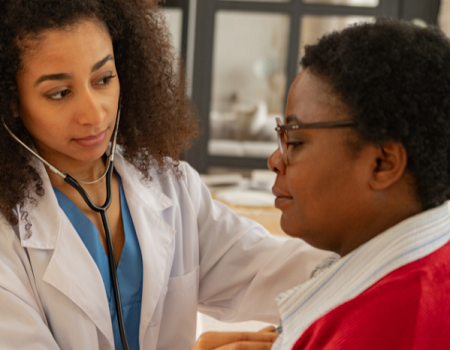
by R-IV PHTC | Mar 18, 2022 | Training
Improving Lung Health of Patients with Sickle Cell Disease (SCD): Alabama Perspective
Year: 2022 | Competency/Strategic Skill: Public Health Fundamentals | Priority Topic: N/A | Setting: On-line | Format: On-demand | Sponsor: Alabama Public Health Training Network
Overview:
This is a live webinar on April 13, 2022 from 12:00 pm – 1:30 pm CT
Sickle Cell Disease (SCD) is the most common life-shortening autosomal recessive disorder that predominantly affects African Americans. Alabama has one of the highest rates of SCD according to the CDC. Acute Chest Syndrome (ACS) is the most common cause of death in children with Sickle Cell Disease (SCD) and accounts for 25% of the mortality in SCD. ACS requires admission to the hospital with an average stay of 10 days in children and 13 days in adults. It peaks in childhood, affecting 25.3% of children with a death rate of 1.1% per episode.
In adults, the mortality rate of ACS is even higher at 4.3% per episode. Recurrent ACS leads to pulmonary fibrosis and restrictive lung disease which adds to the morbidity related to SCD and increases the odds of recurrence due to worsened oxygenation. Most of the morbidity and mortality burden of SCD occurs from ACS and other pulmonary complications of SCD such as asthma, pulmonary hypertension, and sleep disordered breathing. There are
promising curative therapies of SCD which should enhance
efforts to maintain lung health in this population.
Learning Objectives
By the end of this training, participants should be able to:
1. List pulmonary complications of sickle cell disease (SCD).
2. Discuss the impact of pulmonary complications on patients with SCD, including patient’s perspectives.
3. Describe efforts to improve the lung health of children with SCD in Alabama using Children’s of Alabama and the University of
Alabama at Birmingham (UAB) as examples.

by R-IV PHTC | Mar 9, 2022 | Featured Training, Training
Misinformation As a Risk Factor During the COVID-19 Pandemic
Year: 2022 | Competency/Strategic Skill: Communication | Priority Topic: N/A | Setting: Online | Format: Live | Sponsor: Emory University/Central Office, University of Alabama at Birmingham
Overview:
This is a recording of the live webinar scheduled for April 26, 2022 at 12PM CT.
Misinformation has been a risk factor throughout the pandemic, leading to more disease and death from COVID-19. Dr. Katrine Wallace (UIC School of Public Health) is an epidemiologist and social media science communicator who debunks misinformation and false claims about COVID-19 and the vaccines. In this talk, she will discuss the difference between misinformation vs disinformation, the techniques that people use to mislead, why misinformation goes so viral on social media, and how viral misinformation is negatively affecting public health.
This webinar is co-sponsored by Alabama Regional Center for Infection Prevention and Control Training and Technical Assistance and the Region IV Public Health Training Center.
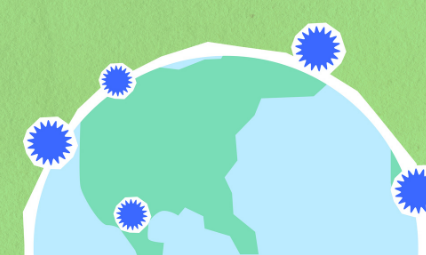
by R-IV PHTC | Mar 9, 2022 | Training
Infection Prevention: What Is It? Can It Really Help Protect Us from Pathogens?
Year: 2022 | Competency/Strategic Skill: Public Health Fundamentals | Priority Topic: Other Infectious Diseases | Setting: Online | Format: On-Demand | Sponsor: Emory University/Central Office, University of Alabama
Overview:
This is a recording of a live webinar scheduled for March 22, 2022 at 12PM CT.
The Alabama Regional Center for Infection Prevention and Control Training and Technical Assistance presents “Infection Prevention: What is it? Can it really help protect us from pathogens?”. COVID has reminded us how vulnerable the human race is to pathogens. Infectious disease outbreaks and pandemics are not new. They have helped shape how the human race has evolved and how we live in the world.
In this webinar, Mary Duncan, Senior Director of Infection Prevention at the University of Alabama-Birmingham Health System, will explain what infection prevention is and how it can help protect us from infectious diseases. She will review the evolution of infection prevention and explore key infection prevention measures that are used every day. Participants will also be able to identify potential trends in infection prevention and how these may help protect us from another pandemic. This webinar is co-sponsored by Alabama Regional Center for Infection Prevention and Control Training and Technical Assistance, Region IV Public Health Training Center, and the Deep South Center for Occupational Health and Safety.
This webinar is co-sponsored by Alabama Regional Center for Infection Prevention and Control Training and Technical Assistance, Region IV Public Health Training Center, and Deep South Center for OH&S .
Alabama Nursing CEUs Pending.

by R-IV PHTC | Feb 25, 2022 | Featured Training, Training
Community Assessment: Conducting Surveys
Year: 2021 | Competency/Strategic Skill: Data Analytics and Assessment; Community and Partner Engagement | Priority Topic: N/A | Setting: Online | Format: On-Demand | Sponsor: Emory University/Central Office
Overview:
This is a self-paced online course expected to take 45 minutes to complete.
This course provides an introduction to planning for and conducting community surveys. It introduces concepts and applies knowledge and skills that are essential for planning for and conducting a survey and analyzing and disseminating survey data specifically for the purpose of community assessment. It is an introductory-level course designed to build competence in data analytics and assessment as well as community engagement in public health professionals, especially those in the governmental public health workforce. There are no prerequisites.
The course contains two modules: the content module and an evaluation. After finishing both modules, learners will earn a certificate of completion. When the certificate is available, learners will see a Certificate button on their dashboard.
Participants will need a broadband internet connection (Google Chrome or Mozilla Firefox are preferred browsers) and computer speakers. For technical support, please contact emoryphtc@emory.edu.
About the Course Developers
This course was developed by the Region IV Public Health Training Center at the Emory University Rollins Schools of Public Health. The content was developed by Kirsten Rodgers, EdD, MSPH, MCHES®, Principal and Owner of Proximate Learning.
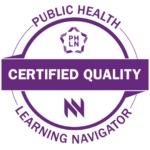

by R-IV PHTC | Feb 25, 2022 | Featured Training, Training
Difficult Dialogues: Learning Effective Communication About Tough Topics
Year: 2022 | Competency/Strategic Skill: Communication | Priority Topic: N/A | Setting: Online | Format: On-demand | Sponsor: Emory University/Central Office, University of Alabama
Overview:
This is a recording of the live webinar scheduled for March 10, 2022 at 12PM CT.
In today’s polarized and increasingly isolated communication landscape it can feel impossible to break through the noise and establish a meaningful dialogue about issues related to the COVID-19 pandemic. In this webinar, Dr. Adam Brooks from the University of Alabama shares with us the basis for effective communication and how to shift tough topics from a debate to a dialogue.
By the end of this webinar you will be able to:
- Identify the techniques of effective communication.
- Break down barriers to arrive at shared understanding.
- Determine the difference between dialogue and debate.
- Apply the four steps of active listening.
- Recognize the barriers put up around complex issues like vaccine.
- Develop strategies to structure conversations for better outcomes.
This webinar is co-sponsored by Alabama Regional Center for Infection Prevention and Control Training and Technical Assistance and the Region IV Public Health Training Center.
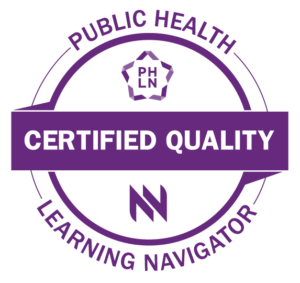
by R-IV PHTC | Feb 23, 2022 | News
R-IV PHTC Trainings Earn Quality Seal
The Learning Navigator Seal is granted to organizations whose trainings have been screened, reviewed, and approved through the Public Health Learning Navigator’s peer Quality Review Process.

by R-IV PHTC | Feb 20, 2022 | Field Placement Stories
Yasmin Goreja was completing her dual masters in public health and social work at the University of Georgia when she served as a Region IV PHTC Pathways to Practice Scholar in the fall of 2021. In her field placement, Yasmin had the opportunity to work with the East Georgia Cancer Coalition (EGCC) to create a new program known as “Love Your Lungs.” This program aims to reduce the prevalence of lung cancer in the region by helping residents quit tobacco through a variety of smoking cessation methods. The program also works to guide healthcare providers with evidence-based resources to assist their patients’ quit attempt. Here is Yasmin’s reflection on her experience in her own words:
The East Georgia Cancer Coalition is an essential asset to the residents of Georgia, especially to individuals who have limited access to cancer-related resources. Creating the Love Your Lungs program has allowed this organization to address a significant, yet under-addressed issue in the state of Georgia and across the coalition region. Moving forward, EGCC should continue to establish the foundation of the program and later expand it to more clinics across the region, especially in rural areas. Going forward, creating a virtual telehealth component of this program could potentially reach a greater target population across the region. Lastly, further research on lung cancer prevalence rates and various demographic tobacco statistics among East Georgia residents is highly recommended to better serve this population.
Working at the East Georgia Cancer Coalition has reaffirmed my belief that access to healthcare is a fundamental right for all individuals. This organization strives to address many cancer-related needs that are often overlooked. Interning here has helped me gain practical experience that I hope to use as a future public health practitioner. The project I worked on allowed me to truly understand tobacco dependence as more than just a “bad habit.” Instead, I learned how addictive nicotine is and how it can chemically alter an individual’s brain, eventually leading to dependence. I hope to continue to use my skills and knowledge on tobacco dependence to spread information to vulnerable populations. EGCC has granted me greater insight into the East Georgia region and its needs, and I am excited to see how the Love your Lungs program continues to unfold.

by R-IV PHTC | Feb 10, 2022 | Training
Epidemiology 101: Fundamental Concepts for Understanding the Pandemic
Year: 2022 | Competency/Strategic Skill: Data Analytics and Assessment | Priority Topic: Other Infectious Disease | Setting: Online | Format: On-demand | Sponsor: Emory University/Central Office and University of Alabama at Birmingham
Overview:
This is a 60-minute recording of a live webinar.
Since the beginning of the COVID-19 pandemic, understanding epidemiologic concepts has become paramount for personal and professional decision-making. This webinar will give you several tools to read and critically think about pandemic-related news. We will explore concepts like herd immunity, vaccine efficacy, and endemic infection, and consider what they mean for COVID-19 control. Finally, we will practice disentangling correlation from causation.
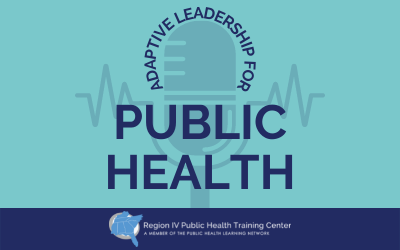
by R-IV PHTC | Dec 2, 2021 | Featured Training, Training
Adaptive Leadership for Public Health
Year: 2021 | Competency/Strategic Skill: Leadership and Systems Thinking | Priority Topic: N/A | Setting: Online | Format: On-demand | Sponsor: Emory University/Central Office
Overview:
This is a podcast series with six episodes. Each episode is about 20 minutes. New episodes are released monthly.
Adaptive Leadership for Public Health is designed to help tier 3 (senior management/executive level) public health professionals address complex challenges by growing and thriving as an adaptive leader.
Episode 1: What is Adaptive Leadership? (available now) Download Transcript
Episode 2: Leadership Principles and Practices (available now) Download Transcript
Episode 3: Cultural Competence (available now) Download Transcript
Episode 4: Managing Conflict (available now) Download Transcript
Episode 5: Collaborative Leadership (available now) Download Transcript
Episode 6: Leading Change (available now) Download Transcript
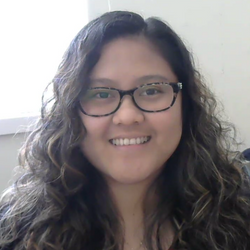
by R-IV PHTC | Dec 2, 2021 | Field Placement Stories
Angela Lupo was a senior at the University of North Carolina Wilmington majoring in Public Health with a concentration of Global Health when she served as a Region IV PHTC Pathways to Practice Scholar in the summer of 2021. In her field placement, Angela worked with the Center for Healthy Communities, also in Wilmington. Here is Angela’s reflection on her experience in her own words:
Center for Healthy Communities captured my interest because of their goals and mission. Because this agency works with the communities, I was exposed to their projects that focused on helping the needs of the communities. I also had a great experience working with this agency’s community partners because they helped me broaden my knowledge and skills especially when communicating with them and with other people. This agency did not disappoint me because by working with them, I gained confidence talking to other people and not hesitant to speak up even though English is not my first language.
During my internship, I learned to developed, implemented, and evaluated a nutrition education program that focused on healthy eating with hydration and the integration of diabetes. I also learned to conduct online research to locate and learn about nutrition programs from different agencies within New Hanover County and the Northside Health & Wellbeing Improvement Team’s partnering agencies. As a future health educator, I valued all the experiences that I had from working with this agency especially when educating the communities and promoting their health. In addition, by working with the Center for Healthy Communities, made me realized all the skills that I need to improve in order for me to be successful when I work at the real world. I believe that all the things that I learned from Center for Healthy Communities will be very helpful to me when I entered the public health world after I graduate at the University of North Carolina Wilmington.

by R-IV PHTC | Nov 15, 2021 | Training
Innovation Approaches to Tackle Public Health and Community Challenges
Year: 2021/2022 | Competency/Strategic Skill: Leadership and Systems Thinking | Priority Topic: N/A | Setting: Online | Format: On-Demand | Sponsor: Emory University/Central Office
Overview:
This is a three-part webinar series; all parts were recorded. These were interactive webinars in which learners engaged with the instructor and other participants. Learners may choose to register for all webinars in the series or for individual sessions.
Systems problems, by definition, are complex and can seem impossible to tackle. However, there are tools and innovative approaches that might help public health professionals and partners make progress on these problems. Join us for a 3-part webinar series to learn tools and approaches for tackling large-scale community challenges, from maternal health to opioid overdoses. In the first webinar, we will cover stakeholder mapping and how understanding the whole ecosystem of players can help you decide who to include in co-creating solutions and what communications approaches to use. The second webinar will cover right-sizing your problem so that you can effectively approach and tackle it. If we don’t break systems problems down into manageable pieces, we often become immobilized by the complexity or risk losing the nuances of the problem. Finally, building off the identified parts of the ecosystem, in the third webinar, we’ll journey map the current, as well as the ideal, situation. From there, we can look at the gaps between the two states and ideate possible solutions.

by R-IV PHTC | Oct 26, 2021 | Training
Using Strategic Messaging and Framing to Motivate Others to Support Public Health
Year: 2021 | Competency/Strategic Skill: Community and Partner Engagement | Priority Topic: N/A | Setting: Online | Format: On-demand | Sponsor: Emory University/Central Office
Overview:
This is a self-paced course. This is the third of three courses on Public Health Reaching Across Sectors (PHRASES).
This course focuses on how to use strategic messaging tools simultaneously with framing tools to motivate cross-sector partners and other non-public health experts to support public health interventions, programs, and policies. The strategic messaging tools that are explored include unique value proposition, narrative structure, one-minute messages, and the public health story map.
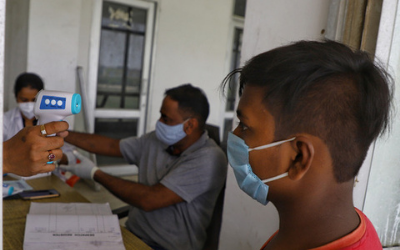
by R-IV PHTC | Oct 26, 2021 | Training
Refugee Health: Public Health Promotion and Disease Prevention through Culturally Competent Care
Year: 2017 | Competency/Strategic Skill: Cultural Competence, Diversity and Inclusion | Priority Topic: N/A | Setting: Online | Format: On-demand | Sponsor: Emory University/Central Office
Overview:
This is a recording of a webinar held on March 13, 2017.
This webinar presentation explores refugee resettlement, health surveillance methods that help identify health conditions among newly arriving refugees, and the impact of refugee health from multiple perspectives. During 2016, approximately 80,000 refugees and other entrants were resettled into virtually every state in the US as part of the federal refugee resettlement program. Refugees bring with them a variety of health conditions and health needs that are important to address in order for them to achieve the self-sufficiency required for success resettlement. As refugees represent multiple cultures and speak many different languages, integration into local society requires that communities be competent to address the cultural and communication needs of their new community members.

by R-IV PHTC | Sep 28, 2021 | Featured Training, Training
Reinvesting in the Health and Wellness of America
Year: 2021 | Competency/Strategic Skill: Resource Management and Financial Planning | Priority Topic: N/A | Setting: Online | Format: On-demand | Sponsor: Emory University/Central Office
Overview:
This is a recording of a webinar held on October 12, 2021.
Dr. William E. Cooke is a physician in a rural, southern Indiana town of Austin, Indiana, and has first-hand knowledge of how the resources and opportunities available to communities impact the health, prosperity, and wellbeing of the people living there. Discrimination and deindustrialization have left pockets of concentrated poverty, toxic stress, and inequity and created health disadvantages for many. Unfortunately, our public health system has not risen to the challenge. In his book, Canary in the Coal Mine: A Forgotten Rural Community, a Hidden Epidemic, and a Lone Doctor Battling for the Life, Health, and Soul of the People, Dr. Cooke discusses these factors and how they came into play in his fight against the opioid epidemic and the worst drug-fueled HIV outbreak ever seen in rural America.
In this webinar and based on his experiences in Austin, Dr. Cooke will discuss the need to reinvest in the health and wellness of America and to build an effective public health system that benefits everyone in the community.
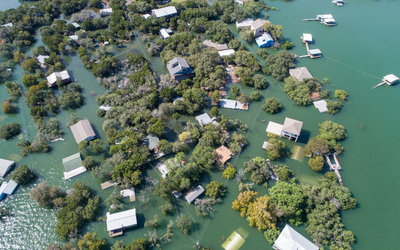
by R-IV PHTC | Sep 13, 2021 | Featured Training, Training
Data-Driven and Equity-Driven Tools to Assess Climate, Health, and Equity Locally
Year: 2021 | Competency/Strategic Skill: Cultural Competence, Diversity and Inclusion | Priority Topic: N/A | Setting: Online | Format: On-demand | Sponsor: Emory University/Central Office
Overview:
This is a 90-minute recording of a webinar held on September 16, 2021.
Which data and tools can help us determine patterns of unfair differences and drive equitable solutions? This presentation will introduce a range of actionable tools, applied nationally to indicate vulnerability at the nexus of climate change, health, and equity. Equity is deeply connected to all health issues, and climate risks are exacerbating these problems. How can we promote interventions which maximize co-benefits and holistically foster well-being?
This session will explore socioeconomic risks and correlate them to disaster risk. Are there links between flood risk hotspots and other geographic factors which exacerbate disadvantaged communities? Where are there vulnerable populations located in high storm surge zones? Households with severe cost burden are less likely to have savings to prepare for, stay safe during, and recover from hurricanes and environmental hazards.
With COVID-19 intersecting with hurricane season, we have seen the dramatic interactions and cascading impacts of dual disasters. How can we bring these issues to light and drive positive change in our most susceptible areas? We will share how the Florida and Georgia Hurricane Response Hubs have been promoting data-driven leverage to prioritize resources and support.
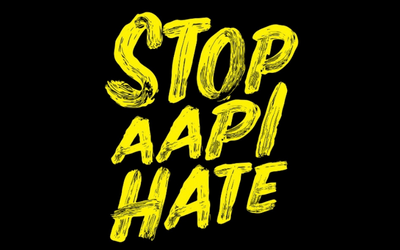
by R-IV PHTC | Sep 13, 2021 | Training
Stop Asian American and Pacific Islander (AAPI) Hate
Year: 2021 | Competency/Strategic Skill: Cultural Competence, Diversity and Inclusion | Priority Topic: Mental Health | Setting: Online | Format: On-demand | Sponsor: Emory University/Central Office
Overview:
This is a 90-minute recording of a webinar held on September 29, 2021.
Since early 2020, Asian American and Pacific Islander (AAPI) communities across the country have been subjected to racist physical and verbal attacks sparked by the pandemic. Thousands of incidents have been reported to the Stop AAPI Hate coalition, which consists of the Asian Pacific Policy and Planning Council (A3PCON), Chinese for Affirmative Action, and the Asian American Studies Department of San Francisco State University. The Stop AAPI Hate coalition has been working to track and respond to incidents of hate, violence, harassment, discrimination, shunning, and child bullying against AAPIs. This webinar will describe partners and investments needed to address racism and discrimination toward AAPI communities and ways in which public health professionals can help stop anti-Asian hate.

by R-IV PHTC | Aug 16, 2021 | Field Placement Stories
Dawn Mapatano was a Master of Public Health student at Jackson State University with a concentration in Epidemiology when she served as a Region IV PHTC Pathways to Practice Scholar in the fall of 2020. In her field placement, Dawn worked with the West Central Alabama Area Health Education Center (AHEC) to assess opioid use disorder treatment needs. Here is Dawn’s reflection on her experience in her own words:
This field placement appealed to me initially because I saw that they worked with the rural community of southern Alabama and I had not had an opportunity to work with in a rural community because I have always worked and lived in an urban area. Learning that the focus of the activities that I would be working on was the immense issue of opioid addiction and the opioid crisis currently occurring in southern Alabama really intrigued me. I had not previously had the opportunity to work directly on an issue that is domestically centered but also has global ramifications. The survey that our team created to assess the needs of the community is a concept I was familiar with due to the coursework that I have taken as a master’s of public health candidate. It was intriguing to see how something that I had only seen in practice within a global public health context like a need’s assessment was also applicable within a domestic space.
This experience helped me to become more culturally competent because I had to think about an issue that I had no previous experience with. I was tasked with then displaying sensitivity to the people who have been placed in those contexts. In the initial phone calls, I talked to community members who were involved in providing resources for people addicted to opioids. I was able to figure out ways to communicate the reason this grant would also be helpful for the southern Alabama community. Learning to use Qualtrics for the first-time is also a useful skill gained from this experience as I now know how to create surveys and assess and analyze the data that come out of these surveys.

by R-IV PHTC | Jul 8, 2021 | Featured Training, Training
Year: 2021 | Competency/Strategic Skill: Resource Management and Financial Planning | Priority Topic: N/A | Setting: Online | Format: On-demand | Sponsor: Emory University/Central Office
Overview:
This is a two-hour recording of a webinar held on July 15, 2021.
Recent research says that executives average 23 hours per week in meetings and 49% of participants considered unfocused meetings and projects as the biggest workplace time waster and the primary reason for unproductive work days.In this session you’ll learn tactics to reduce meeting attendance and make the meetings you are going to more efficient and (dare we say) more fun. From pre-meeting planning, to structured meeting styles, to post-meeting follow up, participants will do hands-on training that will improve any meeting they are running. Stop steamrollers before they start, draw out the quiet experts in the room, be strategic with your slide deck and keep your agenda on track. By energizing and activating meetings, hopefully we can get out of meetings a little faster and a little happier.
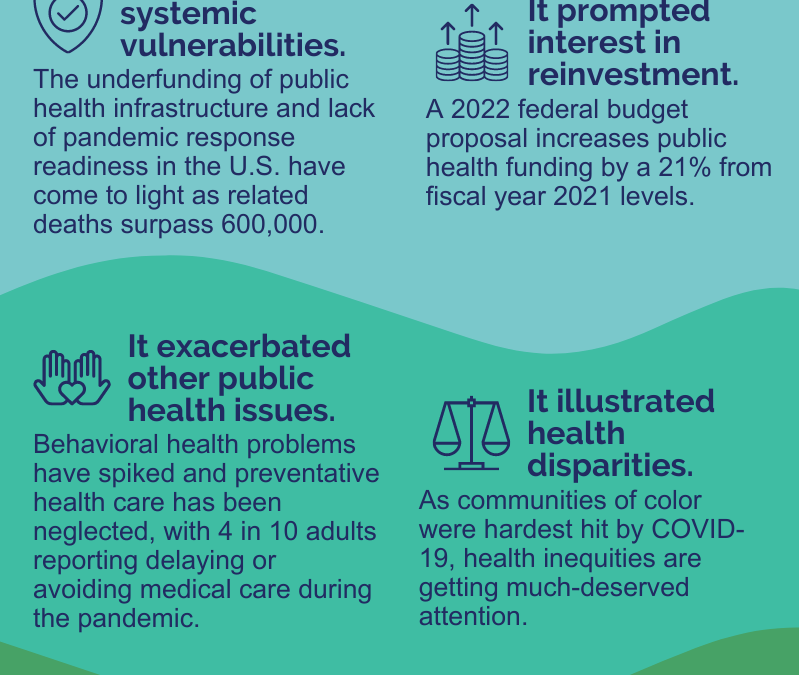
by R-IV PHTC | Jul 1, 2021 | News
From how we work and learn to how we socialize and shop, the COVID-19 pandemic has affected most aspects of our lives as individuals. But how has the pandemic affected the landscape of public health? There’s no shortage of ways—both positive and negative—that the field has been challenged and shaped by the pandemic.

by R-IV PHTC | Jun 24, 2021 | Training
Data Quality and Evidence-based Decision Making in Public Health
Year: 2021 | Competency/Strategic Skill: Data Analytics and Assessment | Priority Topic: N/A | Setting: Online | Format: On-demand | Sponsor: East Tennesee State University
Overview:
This is a self-paced online module.
This video is intended to train the public health workforce by providing information on: 1. Fundamentals of data and data quality. 2. Basic concepts of evidence-based decision making in public health, its relationship with data quality, and some trusted sources of public health evidence.

by R-IV PHTC | Jun 24, 2021 | Training
Cultural Awareness for Contraception Counseling as Routine Evidence Based Practice for Minority Women
Year: 2021 | Competency/Strategic Skill: Cultural Competence, Diversity and Inclusion | Priority Topic: N/A | Setting: Online | Format: On-demand | Sponsor: East Tennesee State University
Overview:
This is a self-paced online module.
Cultural awareness is a component of culturally competent care therefore this training has been developed in response to the growing diversity in the US population, and the unmet need for contraception among minority women. Additionally, a training gap for cultural competency has been identified in the public health tier 3 workforce of Region IV, according to the Public Health Workforce Interests and Needs Survey (PH WINS) findings. The training focuses on integrating and transforming knowledge into behavior and attitude change, by adopting policy, standards, and best practices. The framework for this resource is based on Transformative Learning Theory; a theory that supports adult learners.

by R-IV PHTC | Jun 24, 2021 | Training
Training the Public Health Workforce in Health Equity: Learning from Europe
Year: 2021 | Competency/Strategic Skill: Cultural Competence, Diversity and Inclusion | Priority Topic: N/A | Setting: Online | Format: On-demand | Sponsor: East Tennesee State University
Overview:
This is a self-paced online module.
The United States and European countries are often compared as the highest-ranking regions in socio-economic conditions, political structures, healthcare systems, and economic resilience. Both are high resource regions that are world renown for medical innovation. However, the U.S. consistently ranks low in health equity compared to other high resource countries, many of which are in Europe. This training discusses best practices that public health workers could adopt stateside from European public health initiatives.

by R-IV PHTC | Jun 24, 2021 | Training
Public Health Data: A Training for Tier 1 Workforce
Year: 2021 | Competency/Strategic Skill: Data Analytics and Assessment | Priority Topic: N/A | Setting: Online | Format: On-demand | Sponsor: East Tennesee State University
Overview:
This is a self-paced online module.
The manual is designed to fill the gap by providing a course that can be used to train the region’s entry-level or nonsupervisory workforce on different areas of data for decision making, namely, identifying appropriate sources of data and information, collecting valid data, interpreting and using data to address public health issues. The manual has different modules that are intended to be used for each area; while modules can also be omitted or combined for use as needed.

by R-IV PHTC | Jun 24, 2021 | Training
Principles of Data Quality
Year: 2021 | Competency/Strategic Skill: Data Analytics and Assessment | Priority Topic: N/A | Setting: Online | Format: On-demand | Sponsor: East Tennesee State University
Overview:
This is a self-paced online module.
The essence of this training is to enable the public health workforce to manage and interpret data effectively by understanding the core principles of data quality.

by R-IV PHTC | Jun 21, 2021 | Field Placement Stories
Jennifer Drey was pursuing an Executive Master of Public Health at Emory University when she served as a Region IV PHTC Pathways to Practice Scholar in the fall of 2020. In her field placement, Jennifer was responsible for the development of DASH (Dietary Approaches to Stop Hypertension) diet curriculum for implementation in the Georgia Department of Public Health Coastal Health District. Here is Jennifer’s reflection on her experience in her own words:
This field placement was appealing to me because it offered the opportunity to work on chronic disease prevention programming in my current hometown of Savannah, GA. This fully aligned with my future professional interests, as my career goal is to transition into a position that involves creating and implementing public health programming that improves nutritional outcomes in poverty-affected areas of Georgia. While my placement was rooted in chronic disease prevention and focused on the DASH diet curriculum, my mentor also introduced me to other aspects of the health district, as well as some emerging ideas in chronic disease prevention, including the Blue Zones Power 9 and Knorr 50 Foods for the Future.
This placement was gratifying because it allowed me to apply my skills and knowledge to a project that has the potential to impact the community in which I live. The development of a DASH diet curriculum directly correlated with many of the skills I have acquired through my coursework at Emory and allowed me to apply my knowledge in a real-world setting. As a result, my placement solidified my desire to work in chronic disease prevention programming and helped me gain a better understanding of the barriers to consider when working with a low-income community.
Admittedly, carrying out this placement during COVID-19 raised a few concerns for me with regard to the future of chronic disease prevention programming within public health departments. My primary concern is that there is a lack of resources and staff time to fully address both COVID-19 and chronic disease prevention, and this may exist well into the future. This is worrisome to me, given the relationship between chronic disease and poor COVID-19 outcomes. At the same time, that relationship between chronic disease and COVID-19, as well as the relationships between chronic disease and so many other negative outcomes and premature death, continues to inspire me to pursue work in this field.

by R-IV PHTC | Jun 3, 2021 | Training
Professional Growth through Mentorship: How to Make the Most of Your Student Practicum
Year: 2021 | Competency/Strategic Skill: Community and Partner Engagement | Priority Topic: | Setting: Online | Format: On-demand | Sponsor: Emory University/Central Office
Overview:
This is a one-hour recording a webinar held on June 16, 2021.
The field of public health is booming with opportunities for students to put public health into action beyond the classroom. From the public sector to the private, and both in governmental and nongovernmental spaces – there are endless directions that students can take public health degrees. This session, featuring Montrece Ransom, JD, MPH, Director of the National Coordinating Center for Public Health Training, is designed to introduce students to the purpose of coaching, mentorship and sponsorship and how to leverage these relations for career growth. Session discussions will focus on preparing students for their next role now while in practicums and the do’s and don’ts of being an effective mentee. By examining their skill gaps and opportunities for growth, students can shape their practicum experiences to position them to get the job they want upon graduation. Students will leave this session with strategies to build their skillsets and invest in valuable relationships to land their next role with confidence!

by R-IV PHTC | May 25, 2021 | News
Applications are no longer being accepted for the 2021-2022 cohort.
Are you an emerging leader at a health department or tribal health organization?
Program Overview
The Region IV Public Health Training Center has partnered with the J.W. Fanning Institute for Leadership Development at the University of Georgia to offer the Region IV Public Health Leadership Institute (PHLI). The PHLI provides training for individuals from the eight states that comprise HHS Region IV (Alabama, Florida, Georgia, Kentucky, Mississippi, North Carolina, South Carolina, Tennessee). There is no fee to participate.
The PHLI is an 8-month experience providing 40 contact hours of interaction. The Institute consists of a virtual orientation; a virtual retreat November 1-4, 2021; and 6 virtual sessions, lasting 2 hours each. In addition to these sessions, participants will be asked to complete approximately 2-3 hours of intersession work between the virtual sessions.
Who Should Apply
Emerging leaders who:
- Work in governmental state, local, or tribal public health departments or tribal health organizations
- Work in one of the following states: Alabama, Florida, Georgia, Kentucky, Mississippi, North Carolina, South Carolina Tennessee
- Manage programs, supervise staff and/or demonstrate leadership potential
- Work with underserved populations and/or are from under-resourced health departments
Program Learning Objectives
By the end of the Institute, participants will be able to:
- Identify personal leadership strengths
- Address a leadership challenge through a self-directed adaptive approach
- Engage in peer consulting with Region IV colleagues
- Apply leadership competencies in the context of public health
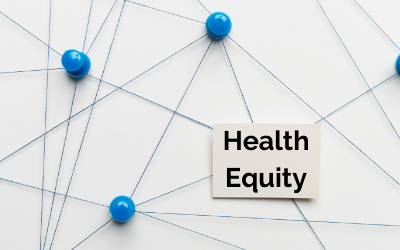
by R-IV PHTC | May 6, 2021 | Featured Training, Training
Connecting Cross-Sectors to Advance Health Equity Where it Matters
Year: 2021 | Competency/Strategic: Cultural Competence, Diversity and Inclusion | Priority Topic: N/A | Setting: Online | Format: On-Demand | Sponsor: Emory University/Central Office
Overview:
This is a 90-minute recording of a live webinar held on May 24, 2021.
Recently, we have seen an increase in diversity, equity and inclusion initiatives in the workplace to address public health inequities. The slogan “Nothing for us, without us” has encouraged inclusivity and representation of disparate end-users in the planning and implementation of interventions that address Social Determinants of Health. However, to effectively address disparities, we must reach beyond roles, and collaborate to address multi-sectoral problems that foster inequalities.

by R-IV PHTC | May 3, 2021 | Training
Pediatric Mental Health in the Wake of a Pandemic: Data, Strategies and Stories
Year: 2021 | Competency/Strategic Skill: Program Planning | Priority Topic: Mental Health | Setting: Online | Format: On-Demand | Sponsor: Emory University/Central Office
Overview:
This is a 60-minute recording of a live webinar held on May 19, 2021. This webinar is co-sponsored by the Mental Health Technology Transfer Center at Emory University.
The recent pandemic has created a confluence of uncertainty, social isolation, and disruptions in services and supports important to children. The nature and extent of the mental health impact on this age group depends on pre-existing vulnerabilities, contextual issues related to their COVID experiences, and the effectiveness of response efforts. In this interactive, virtual webinar, risks and protective factors will be identified, and effective strategies for promoting recovery from pandemic related distress will be explored using a developmental lens, and a social-ecological framework. Whenever possible, child and parent narratives will be used to illustrate concepts.

by R-IV PHTC | Apr 22, 2021 | Training
Public Health Over Politics: Impact on the Public Health Workforce
Year: 2021 | Competency/Strategic Skill: Policy Development | Priority Topic: N/A | Setting: Online | Format: On-Demand | Sponsor: Emory University/Central Office
Overview:
This is a 90-minute recording of a webinar held on May 5, 2021.
With the pressure of pandemic politics, we are seeing an impact on the public health workforce including burnout and an exodus of public health workers. During the worst pandemic in over a century, we also saw the devastating impact of politics on public health. This webinar will explore how politics made the public health response to the COVID-19 pandemic more difficult, and the long-term impact on the public health workforce.




